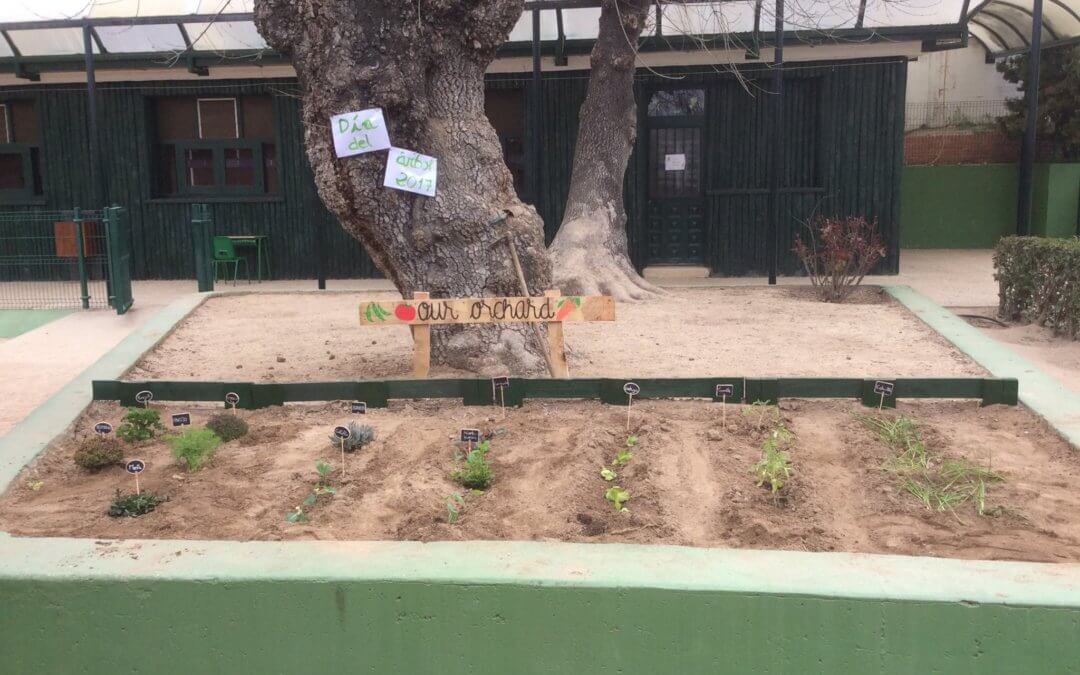“Concienciar a los alumnos sobre el valor del mundo en el que vivimos y participar activamente en su conservación, son las claves para conseguir un futuro mejor y más sostenible”. En Logos International School sabemos la importancia que tiene el Medio Ambiente para todos, especialmente nos interesa la que le dan nuestros alumnos y también cuál es la mejor manera de protegerlo y conservarlo. Logos International School forma parte de la Red Ecoescuelas, un organismo internacional orientado a favorecer prácticas y actividades eco-saludables dentro de los entornos educativos.
Desde que formamos parte de este programa, hace ahora cuatros años, hemos multiplicado el número de actividades enmarcadas en nuestro plan ecológico anual, donde los principales protagonistas y verdaderos precursores del ecologismo son nuestros alumnos. Además, Ecoescuelas ya nos ha concedido el galardón que nos certifica como “Centro comprometido con el Medio Ambiente”. Os contamos qué es el Medio Ambiente y cómo podemos protegerlo desde nuestro propio entorno.
¿Qué es el Medio Ambiente para los niños?
Daniel Casas, Profesor y Coordinador del Proyecto de Ecología y Medio Ambiente en Logos International School, nos habla sobre cómo conciben los niños el Medio Ambiente, y además nos da varios consejos para su conservación desde el lugar donde estos pasan buena parte de la semana: en las aulas.
“La participación de los alumnos en el cuidado del Medio Ambiente es esencial para un futuro mejor, donde prime la reducción de los agentes contaminantes, se promueva el uso racional de los recursos y, en definitiva, donde se consiga un entorno de auténtica sostenibilidad”.
No obstante, es normal que durante el proceso de aprendizaje y cambio de mentalidad que nos lleve a la sustitución de hábitos poco sostenibles para nuestro entorno más inmediato, nos surja un interrogante:
¿Qué es el Medio Ambiente para los niños?
“Lo cierto es que el entorno en el que se desenvuelven los alumnos es una de las partes más importantes para el desarrollo del ecologismo.
En este sentido, el Medio Ambiente no es más que todo aquello que les rodea, tanto físico como químico. En otras palabras, lo que podemos ver, pero también aquello que no podemos contemplar. El entorno en el que los alumnos se desenvuelven a diario y todo aquello con lo que pueden interactuar, puede ser entendido como ‘su medio ambiente’.
Por tanto, cuidarlo y tratar de evitar al máximo su degradación debe ser el objetivo principal”, añade el profesor.
Consejos sobre cómo cuidar el Medio Ambiente.
Lo primero que debemos tener en cuenta los docentes, es ofrecer a nuestros alumnos un entorno sano en todos los sentidos. De esto dependerá que su desarrollo se dé dentro de las condiciones y el Medio Ambiente adecuado.
Aprovechar al máximo la luz natural
Durante el día, el consumo de luz eléctrica no es tan necesario. Es importante abrir ventanas, y enseñar a los alumnos a aprovechar al máximo la luz solar.
Reciclar todo lo que se pueda
¿Ropa, libros, juguetes viejos…?
Antes de tirarlo todo a la basura es mejor revisar si se le puede dar una segunda oportunidad, reusándolos. De esta forma, se ahorra dinero evitando comprar algo nuevo y, al mismo tiempo, la Naturaleza queda protegida.
Ecoescuelas nos aconseja y nos proporciona material e instrumentos que nuestros alumnos ponen en práctica día a día, como por ejemplo el reciclaje de papel y plástico o el tradicional concurso de decoración navideña hecha con materiales 100% reciclados.
Separar la basura correctamente
Antes de reciclar algunos residuos, es necesario separarlos. Es fundamental ayudar al alumnado con esta tarea, enseñándoles qué se tira en cada contenedor y por qué. En este sentido, ecopilas, ecovidrio y el propio Ecoescuelas nos proporcionan dinámicas de grupo y formaciones cada curso para fomentar estos hábitos.
No dejar aparatos enchufados
Televisores, ordenadores, consolas de video juegos, altavoces, etc., enchufados consumen energía sin importar que estén apagados. No hay que olvidar desenchufarlos mientras no se utilicen.
¡Plantar!
Los árboles y las plantas son esenciales para preservar la Naturaleza. Aportan oxígeno y reducen parte del CO².
Es vital concienciar al alumnado sobre la importancia plantar.
En Logos International School nuestros alumnos disfrutan de su propio huerto.
¡Gracias a la Red de Ecoescuelas y a múltiples organismos y empresas colaboradoras comprometidas con el Medio Ambiente hemos multiplicado el número de actividades enmarcadas en nuestro plan ecológico anual, convirtiendo a nuestros alumnos en verdaderos protagonistas de la ecología!


